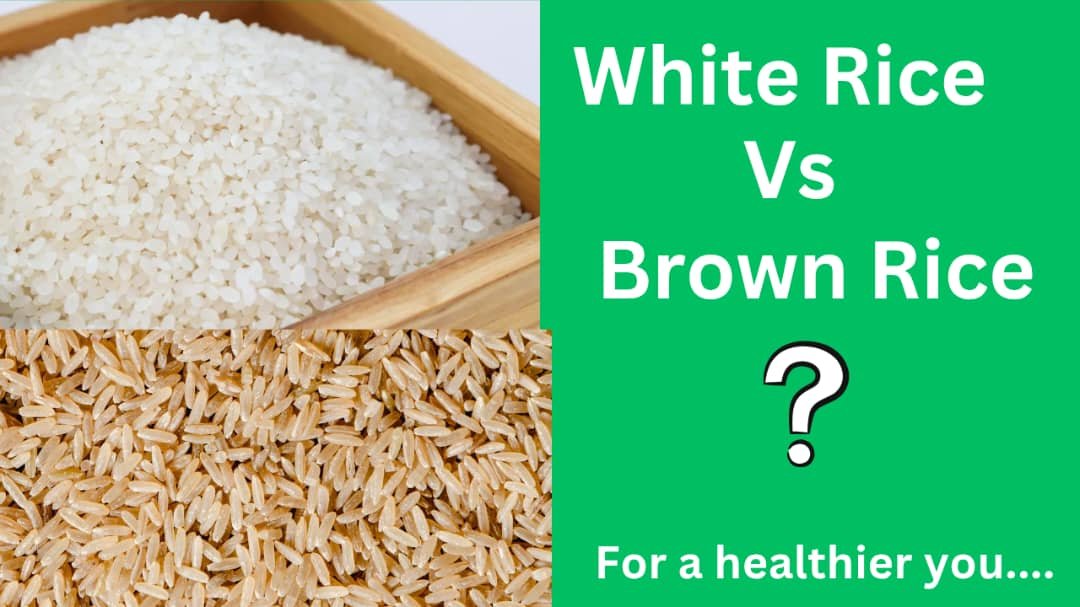When choosing between white and brown rice, many people prefer brown rice because they believe it is healthier.
However, the concept that brown rice is always a superior choice is not as simple as it appears. There are multiple reasons why white rice may be a healthier option than brown rice for some people.
In this post, we’ll look at why white rice can be a healthier choice over brown rice, the nutritional differences, and the health benefits that may make white rice a superior option for some diets and preferences.
Why White Rice Can Be a Healthier Choice Over Brown Rice
Below are several reasons:
1. Nutritional Differences
- Fiber Content: Brown rice is a whole grain, which means it keeps its bran and germ high in fiber. This fiber assists digestion, regulates blood sugar levels, and creates a sense of fullness. White rice, on the other hand, has these sections removed, resulting in a significant reduction in fiber content.
- Vitamins and Minerals: Brown rice contains more vitamins and minerals than white rice. It contains magnesium, phosphorus, and several B vitamins. These nutrients are frequently lost during the refining process that yields white rice.
- Antioxidants: Brown rice includes more antioxidants, which can help fight oxidative stress in the body.
RELATED: What Is The Best Keto Diet Plan For Weight Loss?
2. Glycemic Index
According to research, brown rice has a lower glycemic index (GI) than white rice, which means it raises blood sugar levels more slowly and gradually. This can be useful for people who have diabetes or want to manage their blood sugar.
3. Health Benefits
- Heart Health: Brown rice’s high fiber and nutrient content can help lower cholesterol and lessen the risk of cardiovascular disease.
- Weight Management: Brown rice’s fiber content can help with weight management by increasing satiety, which may help lower overall calorie intake.
RELATED: What Diet Should I Eat To Reduce Belly Fat?
4. Considerations
While brown rice is healthier for most people, it does have some considerations:
- Cooking Time: Brown rice takes longer to cook than white rice.
- Taste and Texture: Some people prefer the taste and texture of white rice.
- Arsenic Content: Brown rice may contain higher levels of arsenic than white rice because arsenic accumulates in its bran. It’s best to wash rice well and vary your grain intake.
- Calorie: Brown rice is frequently regarded as a healthier option due to its increased fiber content, it is equally crucial to consider total calorie intake. White rice often contains fewer calories per serving than brown rice. Individuals who are watching their caloric intake or who want to maintain or lose weight may find that white rice is a better option. By choosing white rice, consumers can minimize their overall calorie intake while still having a great and gratifying dinner.
RELATED: What Nutrients Are Important For Older Adults?
Additional Tip: Why White Rice Can Be a Healthier Choice Over Brown Rice
- Quicker Cooking Time: White rice cooks faster than brown rice, making it ideal for busy individuals or families needing quick meal prep.
- Versatility: Pairs well with a wide range of dishes, from stir-fries to curries, making it adaptable to various cuisines.
- Ease of Preparation: Requires less time and effort to prepare, providing a practical solution for those with time constraints.
- Practical Option: While brown rice offers more health benefits for some, white rice’s convenience and flexibility in cooking can make it a more practical choice for many.
RELATED: What Are The Baby’s Nutritional Needs?
Conclusion
Ultimately, the question of why white rice can be a healthier choice over brown rice depends on the individual’s health goals, preferences, and dietary requirements.
While brown rice may be a better choice for people looking for more fiber and longer energy release, white rice has some advantages, including easier digestion, reduced phytic acid levels, and faster cooking times.
White rice may be the correct choice for you if you want to improve nutrient absorption, get a quick energy boost, or add variety to your meals.
RELATED: Diet Mistakes To Avoid
So, the next time you have to choose between the two, think about these variables and make the selection that best suits your health and lifestyle.






